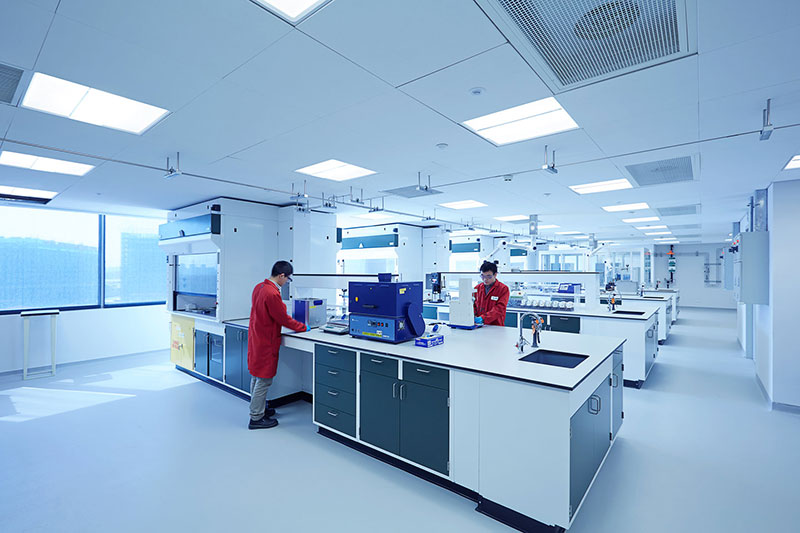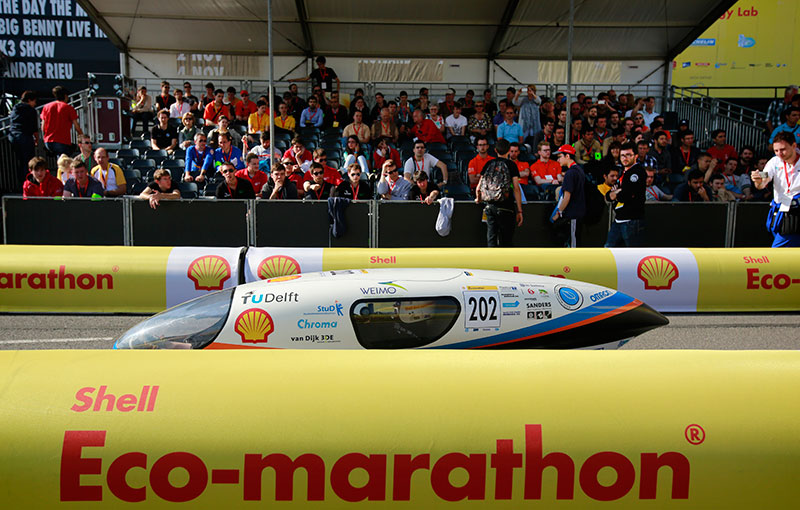 In an age where drivers assume that everything in their cars should work all the time, efficient products are more important than ever. Using the correct lubricant in an engine is one way to help cars and trucks remain reliable, and Selda Gunsel, Vice President of Global Technology at Shell Lubricants, works hard to ensure that the products her company has developed for OEM vehicle applications are used throughout the life of a vehicle.
In an age where drivers assume that everything in their cars should work all the time, efficient products are more important than ever. Using the correct lubricant in an engine is one way to help cars and trucks remain reliable, and Selda Gunsel, Vice President of Global Technology at Shell Lubricants, works hard to ensure that the products her company has developed for OEM vehicle applications are used throughout the life of a vehicle.
“Our approach in developing next-generation lubricants relies on our partnerships and close working relationships with car manufacturers,” Gunsel explains. “We ensure that we collaborate with leading companies and manufacturers, and we apply the learnings from these collaborations to develop our next-generation lubricants.”
The VP continues to describe what she calls the key elements of Shell’s technology strategy. “The first element is innovation, the second is based on partnerships, and the last one is application,” she says. “Innovations starts with our customers’ and market needs, so we make sure that we have good insights about our OEM customers’ needs as well as general consumer needs.
“This defines our innovation programme. For example, fuel economy is a big challenge, but it’s also a consumer need. Every time we can improve fuel economy, consumers can save money. And of course, this also reduces carbon dioxide emissions, which is critical for health and for the environment.”
Developing an innovative product in the lab is not enough, says Gunsel. Shell’s approach is to make sure that its products are applied correctly within its customers’ operations, to improve efficiency and productivity. This is ensured by having technical specialists working in the field with customers, to oversee the application of the right products in the right places.
However, the emergence of various alternative powertrains and alternative fuel technologies is making it increasingly difficult to know which lubricants to use and where to use them. Gunsel details how new lubricant technologies are also required to optimise performance.
“Smaller turbo-charged engines run hotter and require lubricants with higher oxidation, nitration stability and ash content to prevent piston deposits and pre-ignition,” she says. “The growing use of biofuels in alternative fuel vehicles may increase corrosion in engines and cause oil dilution, which may lead to reduced lubricant film thickness and increased wear. Therefore, lubricants with improved corrosion, wear and dispersancy properties are needed.”
For example, hydrogen fuel cell vehicles generate water as a by-product and require new lubricants with high dispersancy levels, while hybrid vehicles require low friction lubricants with improved fuel economy characteristics. While Shell recognises that an alternative solution that matches the energy potential and convenience of gasoline or diesel may eventually take hold of the market, Gunsel believes that focusing on improving the efficiency of existing internal combustion engines is still very important. “Only about 20 to 25% of the energy created by the combustion of fuel is actually used to move the car, so there is still a huge opportunity to improve the thermal and the clinical efficiency of the internal combustion engine,” she says.

With new industry specifications for heavy duty trucks and buses, improving fuel economy is also important in the commercial vehicle industry. Shell is leading development in response to the new PC-11 category, after the American Petroleum Institute (API) asked the company to take the initiative on the evaluation, development and implementation of the new specification. “The tests that are designed to measure fuel economy in this market are currently being developed,” she says, adding that PC-11 products will probably be introduced in late 2016 or early 2017.
Asked about other energy-related activities at Shell, Gunsel explains that the company takes a comprehensive approach when it comes to developing global solutions. “We are working on developing energy-efficient products that help our customers to conserve energy and reduce CO2 emissions,” she says. “In addition, we are working on developing low carbon biofuels, and we have an active technology programme dedicated to developing next generation biofuels. We are also producing more natural gas. It is the cleanest burning fossil fuel available today. And we’re helping to develop further technologies such as carbon capture sequestration. This requires us to work really closely with other technology partners as well as governments.”
One other way that Shell encourages innovations in energy efficiency is through its global sponsorship of the Eco Marathon, which challenges students from around the world to design, build and test ultra energy-efficient vehicles. Gunsel describes it as one of the most exciting programmes she has been involved with.

“It’s really great to see students from university and even high school level coming up with innovative solutions that can help us meet the energy challenge,” she enthuses. “The results of the competition are really impressive. The main focus of the event is to develop vehicles that can go the furthest on one litre of fuel, and I think the solutions that students are bringing to the table are actually very helpful. It gives us some input into our own energy programme.”



